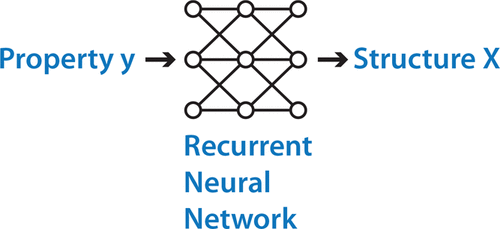当前位置:
X-MOL 学术
›
ACS Cent. Sci.
›
论文详情
Our official English website, www.x-mol.net, welcomes your
feedback! (Note: you will need to create a separate account there.)
Generating Focused Molecule Libraries for Drug Discovery with Recurrent Neural Networks
ACS Central Science ( IF 12.7 ) Pub Date : 2017-12-28 00:00:00 , DOI: 10.1021/acscentsci.7b00512 Marwin H S Segler 1 , Thierry Kogej 2 , Christian Tyrchan 3 , Mark P Waller 4
ACS Central Science ( IF 12.7 ) Pub Date : 2017-12-28 00:00:00 , DOI: 10.1021/acscentsci.7b00512 Marwin H S Segler 1 , Thierry Kogej 2 , Christian Tyrchan 3 , Mark P Waller 4
Affiliation

|
In de novo drug design, computational strategies are used to generate novel molecules with good affinity to the desired biological target. In this work, we show that recurrent neural networks can be trained as generative models for molecular structures, similar to statistical language models in natural language processing. We demonstrate that the properties of the generated molecules correlate very well with the properties of the molecules used to train the model. In order to enrich libraries with molecules active toward a given biological target, we propose to fine-tune the model with small sets of molecules, which are known to be active against that target. Against Staphylococcus aureus, the model reproduced 14% of 6051 hold-out test molecules that medicinal chemists designed, whereas against Plasmodium falciparum (Malaria), it reproduced 28% of 1240 test molecules. When coupled with a scoring function, our model can perform the complete de novo drug design cycle to generate large sets of novel molecules for drug discovery.
中文翻译:

使用循环神经网络生成用于药物发现的聚焦分子库
在从头药物设计中,使用计算策略来生成对所需生物靶标具有良好亲和力的新型分子。在这项工作中,我们证明循环神经网络可以被训练为分子结构的生成模型,类似于自然语言处理中的统计语言模型。我们证明,生成的分子的属性与用于训练模型的分子的属性非常相关。为了丰富具有针对给定生物靶标的活性分子的文库,我们建议使用小组分子微调模型,这些分子已知对该靶标具有活性。针对金黄色葡萄球菌,该模型再现了药物化学家设计的 6051 个测试分子中的 14%,而针对恶性疟原虫(疟疾),该模型再现了 1240 个测试分子中的 28%。当与评分函数结合使用时,我们的模型可以执行完整的从头药物设计周期,以生成大量用于药物发现的新分子。
更新日期:2017-12-28
中文翻译:

使用循环神经网络生成用于药物发现的聚焦分子库
在从头药物设计中,使用计算策略来生成对所需生物靶标具有良好亲和力的新型分子。在这项工作中,我们证明循环神经网络可以被训练为分子结构的生成模型,类似于自然语言处理中的统计语言模型。我们证明,生成的分子的属性与用于训练模型的分子的属性非常相关。为了丰富具有针对给定生物靶标的活性分子的文库,我们建议使用小组分子微调模型,这些分子已知对该靶标具有活性。针对金黄色葡萄球菌,该模型再现了药物化学家设计的 6051 个测试分子中的 14%,而针对恶性疟原虫(疟疾),该模型再现了 1240 个测试分子中的 28%。当与评分函数结合使用时,我们的模型可以执行完整的从头药物设计周期,以生成大量用于药物发现的新分子。











































 京公网安备 11010802027423号
京公网安备 11010802027423号